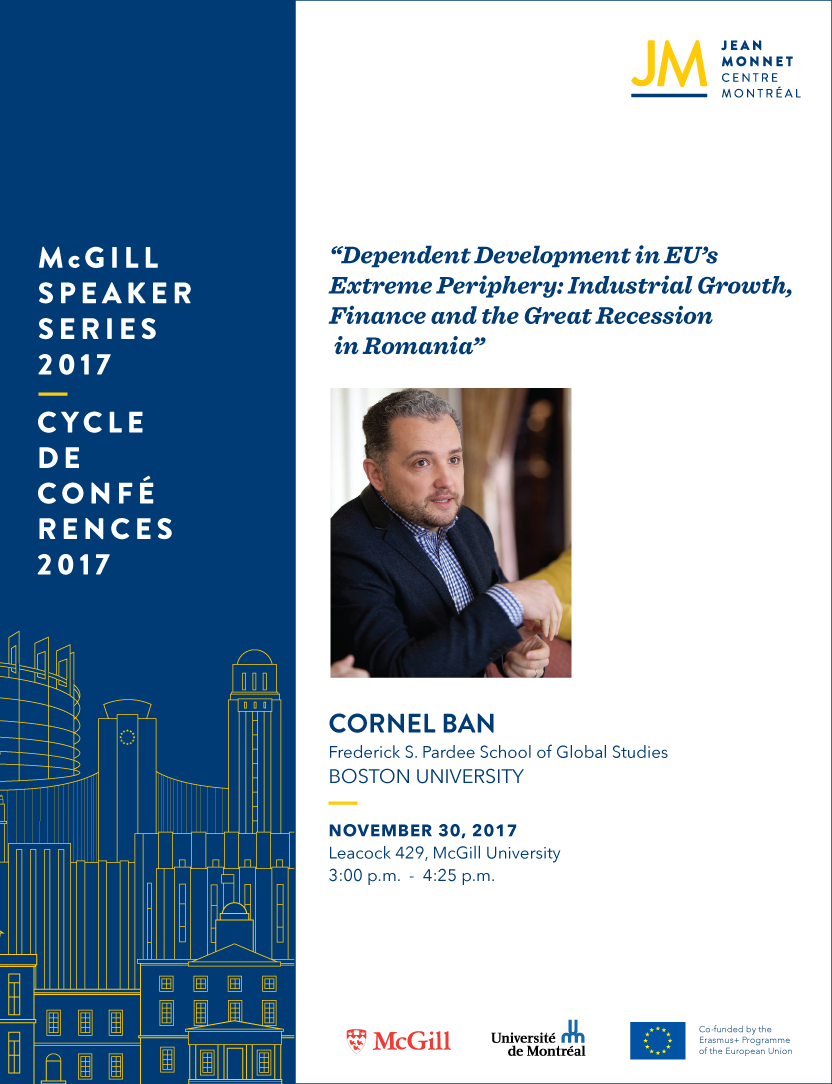Dependent Development in EU’s Extreme Periphery: Industrial Growth, Finance and the Great Recession in Romania
Cornel Ban
Frederick S. Pardee School of Global Studies, Boston University
Le 30 novembre 2017 – 15 h à 16 h 25
Leacock 429, McGill University
Abstract
How did the Great Recession affect the market economies in the new member states? By looking at the case of Romania, I argue that: 1) the pressures applied by international conditionality and capital flight risks have bolstered the neoliberal policy drive that predated the crisis and anchored the country’s economy into a locally calibrated version of a dependent market economy (DME); 2) Romania’s DME banking model proved to have a stabilizing effect via its connections to West European banks, but at a high cost for the state’s fiscal policy autonomy; 3) faced with a combination of massive outmigration and the decline of vocational training, multinational capital pushed for the rejuvenation of national vocational training schemes; and 4) in contrast to the expectations of DME theory, state elites have begun to consciously foster national developmental alliances with capital.











